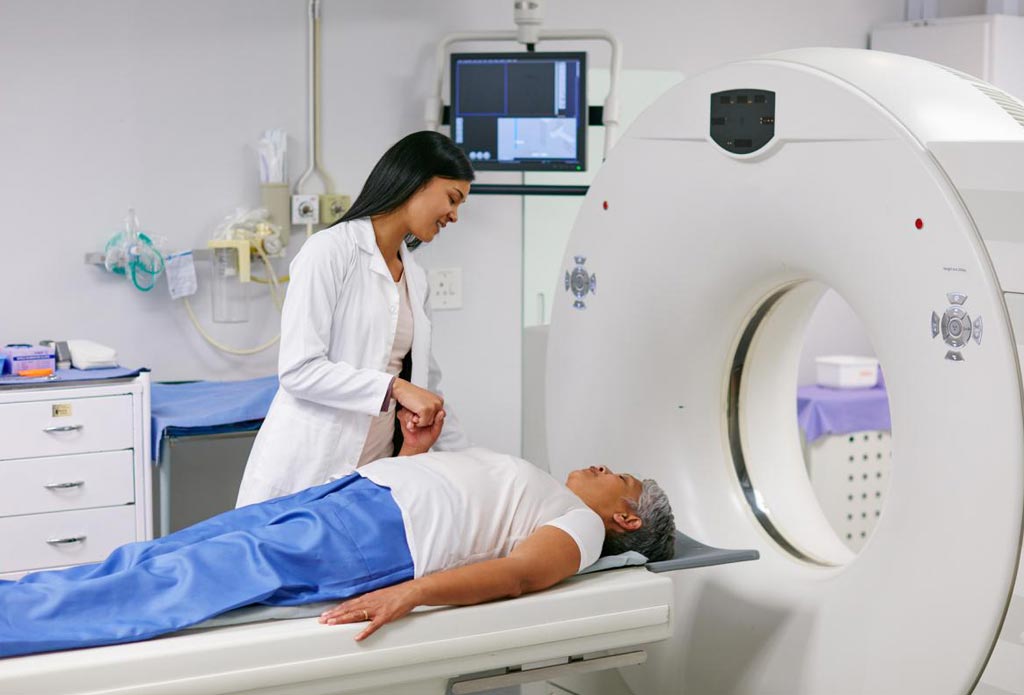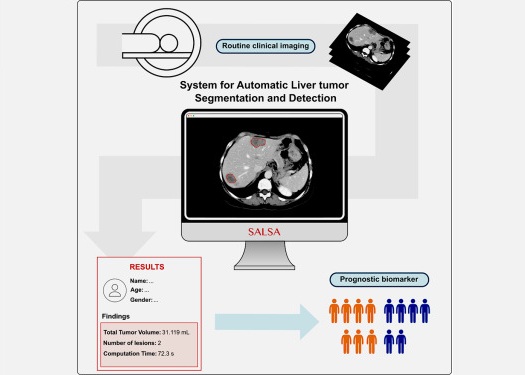New Study Shows MRIs Are Safe for Patients with Implantable Devices
|
By MedImaging International staff writers Posted on 10 Oct 2017 |

Image: Researchers find that MRI scans may be safe for patients with cardiac implantable electronic devices, and chest imaging (Photo courtesy of Intermountain Medical Center Heart Institute).
The results of a new study show that Magnetic Resonance Imaging (MRI) appears to be safe for patients with various implantable cardiac devices such as defibrillators, and pacemakers, and even for chest imaging.
MRI scanning has long been considered dangerous for patients with implantable cardiac devices, but the new study shows that MRI can be safely performed on such patients after all.
The researchers from the Intermountain Medical Center Heart Institute (Salt Lake City, UT, USA) published the results of their study in September 28, 2017, issue of the Journal of Clinical Electrophysiology. The researchers evaluated the MRI studies of 178 patients with cardiac implantable electronic devices, between February 2014 and August 2016, but could not find any problems that needed to be fixed. The study however did not investigate the safety of an MRI scan in direct proximity to the implantable cardiac rhythm devices.
According to the authors, the new study confirms that MRI can safely be used to scan the heart or lungs in patients with implantable devices, and confirms the MagnaSafe findings.
Senior author of the study, Jeffrey L. Anderson, MD, said, "Magnetic resonance imaging has become very popular. It's excellent for looking at soft tissue changes. But it involves very high-strength magnetic fields, which means if a patient has any implanted metal devices containing iron, it could potentially cause harm. X-rays can see bone, but they don't provide much information about soft tissues like the brain, the heart or other internal organs. MRIs are marvelous for that. That's a pretty big number of leads exposed to these very strong MRI fields. You would think if there were even a one percent chance of having a problem, it would have shown up. Not even one generator or lead needed more than a minor adjustment, if any at all."
Related Links:
Intermountain Medical Center Heart Institute
MRI scanning has long been considered dangerous for patients with implantable cardiac devices, but the new study shows that MRI can be safely performed on such patients after all.
The researchers from the Intermountain Medical Center Heart Institute (Salt Lake City, UT, USA) published the results of their study in September 28, 2017, issue of the Journal of Clinical Electrophysiology. The researchers evaluated the MRI studies of 178 patients with cardiac implantable electronic devices, between February 2014 and August 2016, but could not find any problems that needed to be fixed. The study however did not investigate the safety of an MRI scan in direct proximity to the implantable cardiac rhythm devices.
According to the authors, the new study confirms that MRI can safely be used to scan the heart or lungs in patients with implantable devices, and confirms the MagnaSafe findings.
Senior author of the study, Jeffrey L. Anderson, MD, said, "Magnetic resonance imaging has become very popular. It's excellent for looking at soft tissue changes. But it involves very high-strength magnetic fields, which means if a patient has any implanted metal devices containing iron, it could potentially cause harm. X-rays can see bone, but they don't provide much information about soft tissues like the brain, the heart or other internal organs. MRIs are marvelous for that. That's a pretty big number of leads exposed to these very strong MRI fields. You would think if there were even a one percent chance of having a problem, it would have shown up. Not even one generator or lead needed more than a minor adjustment, if any at all."
Related Links:
Intermountain Medical Center Heart Institute
Latest MRI News
- Cutting-Edge MRI Technology to Revolutionize Diagnosis of Common Heart Problem
- New MRI Technique Reveals True Heart Age to Prevent Attacks and Strokes
- AI Tool Predicts Relapse of Pediatric Brain Cancer from Brain MRI Scans
- AI Tool Tracks Effectiveness of Multiple Sclerosis Treatments Using Brain MRI Scans
- Ultra-Powerful MRI Scans Enable Life-Changing Surgery in Treatment-Resistant Epileptic Patients
- AI-Powered MRI Technology Improves Parkinson’s Diagnoses
- Biparametric MRI Combined with AI Enhances Detection of Clinically Significant Prostate Cancer
- First-Of-Its-Kind AI-Driven Brain Imaging Platform to Better Guide Stroke Treatment Options
- New Model Improves Comparison of MRIs Taken at Different Institutions
- Groundbreaking New Scanner Sees 'Previously Undetectable' Cancer Spread
- First-Of-Its-Kind Tool Analyzes MRI Scans to Measure Brain Aging
- AI-Enhanced MRI Images Make Cancerous Breast Tissue Glow
- AI Model Automatically Segments MRI Images
- New Research Supports Routine Brain MRI Screening in Asymptomatic Late-Stage Breast Cancer Patients
- Revolutionary Portable Device Performs Rapid MRI-Based Stroke Imaging at Patient's Bedside
- AI Predicts After-Effects of Brain Tumor Surgery from MRI Scans
Channels
Radiography
view channel
AI Improves Early Detection of Interval Breast Cancers
Interval breast cancers, which occur between routine screenings, are easier to treat when detected earlier. Early detection can reduce the need for aggressive treatments and improve the chances of better outcomes.... Read more
World's Largest Class Single Crystal Diamond Radiation Detector Opens New Possibilities for Diagnostic Imaging
Diamonds possess ideal physical properties for radiation detection, such as exceptional thermal and chemical stability along with a quick response time. Made of carbon with an atomic number of six, diamonds... Read moreUltrasound
view channel.jpeg)
AI-Powered Lung Ultrasound Outperforms Human Experts in Tuberculosis Diagnosis
Despite global declines in tuberculosis (TB) rates in previous years, the incidence of TB rose by 4.6% from 2020 to 2023. Early screening and rapid diagnosis are essential elements of the World Health... Read more
AI Identifies Heart Valve Disease from Common Imaging Test
Tricuspid regurgitation is a condition where the heart's tricuspid valve does not close completely during contraction, leading to backward blood flow, which can result in heart failure. A new artificial... Read moreNuclear Medicine
view channel
Novel Radiolabeled Antibody Improves Diagnosis and Treatment of Solid Tumors
Interleukin-13 receptor α-2 (IL13Rα2) is a cell surface receptor commonly found in solid tumors such as glioblastoma, melanoma, and breast cancer. It is minimally expressed in normal tissues, making it... Read more
Novel PET Imaging Approach Offers Never-Before-Seen View of Neuroinflammation
COX-2, an enzyme that plays a key role in brain inflammation, can be significantly upregulated by inflammatory stimuli and neuroexcitation. Researchers suggest that COX-2 density in the brain could serve... Read moreGeneral/Advanced Imaging
view channel
CT-Based Deep Learning-Driven Tool to Enhance Liver Cancer Diagnosis
Medical imaging, such as computed tomography (CT) scans, plays a crucial role in oncology, offering essential data for cancer detection, treatment planning, and monitoring of response to therapies.... Read more
AI-Powered Imaging System Improves Lung Cancer Diagnosis
Given the need to detect lung cancer at earlier stages, there is an increasing need for a definitive diagnostic pathway for patients with suspicious pulmonary nodules. However, obtaining tissue samples... Read moreImaging IT
view channel
New Google Cloud Medical Imaging Suite Makes Imaging Healthcare Data More Accessible
Medical imaging is a critical tool used to diagnose patients, and there are billions of medical images scanned globally each year. Imaging data accounts for about 90% of all healthcare data1 and, until... Read more
Global AI in Medical Diagnostics Market to Be Driven by Demand for Image Recognition in Radiology
The global artificial intelligence (AI) in medical diagnostics market is expanding with early disease detection being one of its key applications and image recognition becoming a compelling consumer proposition... Read moreIndustry News
view channel
GE HealthCare and NVIDIA Collaboration to Reimagine Diagnostic Imaging
GE HealthCare (Chicago, IL, USA) has entered into a collaboration with NVIDIA (Santa Clara, CA, USA), expanding the existing relationship between the two companies to focus on pioneering innovation in... Read more
Patient-Specific 3D-Printed Phantoms Transform CT Imaging
New research has highlighted how anatomically precise, patient-specific 3D-printed phantoms are proving to be scalable, cost-effective, and efficient tools in the development of new CT scan algorithms... Read more
Siemens and Sectra Collaborate on Enhancing Radiology Workflows
Siemens Healthineers (Forchheim, Germany) and Sectra (Linköping, Sweden) have entered into a collaboration aimed at enhancing radiologists' diagnostic capabilities and, in turn, improving patient care... Read more





















